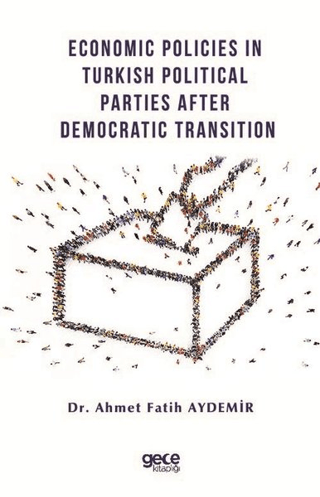Economic Policies in Turkish Political Parties After Democratic Transition

Political parties, which are indispensable elements of democracy, normally declare in detail to the public the economic policies that they will implement through their party programmes. By looking at these programmes, electorates are informed of the economic and social policies proposed by parties and use their democratic preferences, so long as party programmes are not perceived as establishment formalities. In this study, economic policies that political parties entering the Turkish Grand National Assembly (TGNA) want to implement as their party programmes are examined during the tumultuous transition to multi-party democracy in Turkey. In general, political parties were influenced to a large extent by economic policies that were dominant in the time of the liberal period (1950-1960), the import substitution period (1960-1980), and the period of transition to a free market economy (1983-2007).
Political parties, which are indispensable elements of democracy, normally declare in detail to the public the economic policies that they will implement through their party programmes. By looking at these programmes, electorates are informed of the economic and social policies proposed by parties and use their democratic preferences, so long as party programmes are not perceived as establishment formalities. In this study, economic policies that political parties entering the Turkish Grand National Assembly (TGNA) want to implement as their party programmes are examined during the tumultuous transition to multi-party democracy in Turkey. In general, political parties were influenced to a large extent by economic policies that were dominant in the time of the liberal period (1950-1960), the import substitution period (1960-1980), and the period of transition to a free market economy (1983-2007).
| Taksit Sayısı | Taksit tutarı | Genel Toplam |
|---|---|---|
| 1 | - | - |
| 2 | 95,50 | 191,00 |
| 3 | 64,86 | 194,57 |
| 6 | 33,92 | 203,49 |
| 9 | 23,40 | 210,63 |
| Taksit Sayısı | Taksit tutarı | Genel Toplam |
|---|---|---|
| 1 | - | - |
| 2 | 95,50 | 191,00 |
| 3 | 65,87 | 197,60 |
| 6 | 33,92 | 203,49 |
| 9 | 23,40 | 210,63 |
| Taksit Sayısı | Taksit tutarı | Genel Toplam |
|---|---|---|
| 1 | - | - |
| 2 | 95,50 | 191,00 |
| 3 | 65,45 | 196,35 |
| 6 | 33,92 | 203,49 |
| 9 | 23,60 | 212,42 |
| Taksit Sayısı | Taksit tutarı | Genel Toplam |
|---|---|---|
| 1 | - | - |
| 2 | 95,50 | 191,00 |
| 3 | 66,05 | 198,14 |
| 6 | 33,92 | 203,49 |
| 9 | 23,60 | 212,42 |
| Taksit Sayısı | Taksit tutarı | Genel Toplam |
|---|---|---|
| 1 | - | - |
| 2 | 95,50 | 191,00 |
| 3 | 66,05 | 198,14 |
| 6 | 35,40 | 212,42 |
| 9 | 23,60 | 212,42 |
| Taksit Sayısı | Taksit tutarı | Genel Toplam |
|---|---|---|
| 1 | - | - |
| 2 | 95,50 | 191,00 |
| 3 | 60,10 | 180,29 |
| 6 | 33,92 | 203,49 |
| 9 | 23,60 | 212,42 |
| Taksit Sayısı | Taksit tutarı | Genel Toplam |
|---|---|---|
| Tek Çekim | 178,50 | 178,50 |
| 2 | 95,50 | 191,00 |
| 3 | 65,45 | 196,35 |
| 6 | 33,92 | 203,49 |
| 9 | 23,60 | 212,42 |





